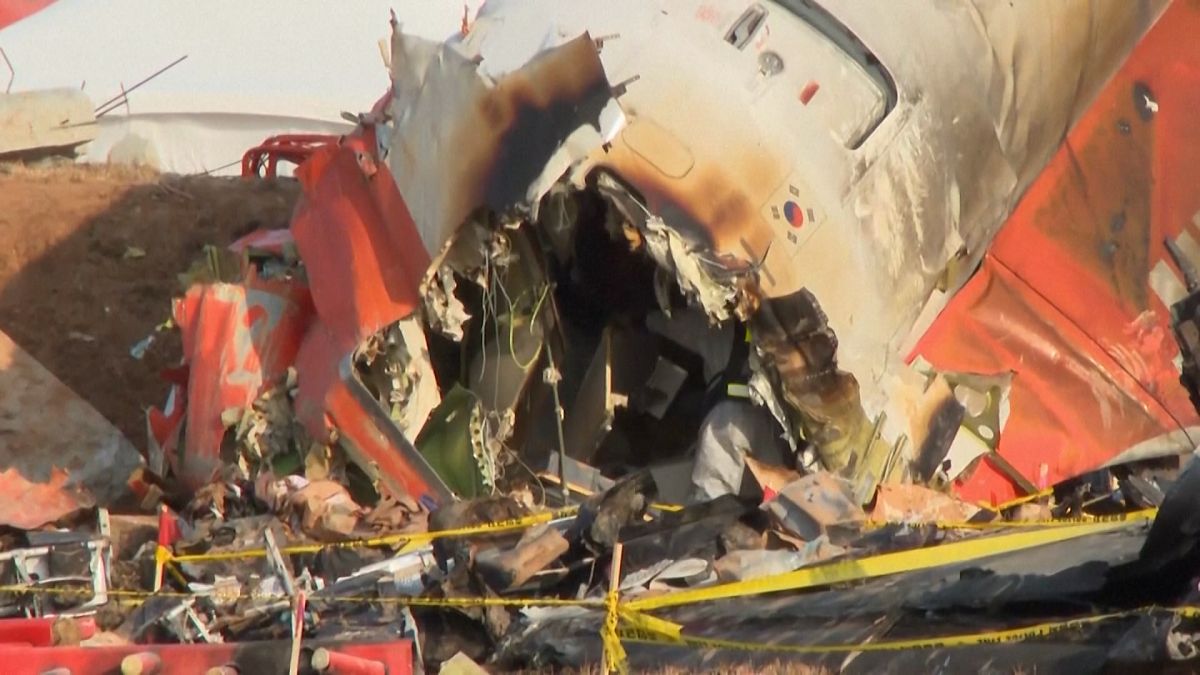A tragic incident occurred on Sunday when a Boeing 737-800 operated by Jeju Air crashed at Muan International Airport in southern South Korea. Out of the 181 passengers and crew on board, only two survived. The pilot had received a warning from air traffic controllers about possible bird strikes, and the plane issued a distress signal before crashing. The aftermath of the crash has been devastating, with bereaved families visiting the site for the first time on Wednesday for an emotional memorial service. The country is currently observing seven days of national mourning in light of this being the deadliest disaster in South Korea’s aviation history in decades.
The Boeing 737-800 crash at Muan International Airport has reignited concerns over flight safety and regulations in South Korea. Investigators are working diligently to determine the cause of the crash, focusing on the warnings of possible bird strikes received by the pilot. The aviation industry in South Korea is under scrutiny as authorities seek to prevent such tragedies from occurring in the future. Improved safety measures and stricter regulations may be implemented to ensure the safety of passengers and crew on all flights within the country.
The tragic loss of all but two individuals on board the Boeing 737-800 has sent shockwaves through South Korea and the global aviation community. The emotional toll of the crash is evident as bereaved families mourn their loved ones and seek answers as to what caused the devastating incident. The memorial service held at the crash site was a somber reminder of the lives lost and the impact of such a tragic event. The nation’s unity in observing seven days of national mourning reflects the gravity of the situation and the need for solidarity during times of grief.
As the investigation into the Boeing 737-800 crash continues, questions arise about the safety protocols in place at Muan International Airport and across South Korea’s aviation industry. Measures to enhance safety and prevent similar incidents are likely to be a top priority for authorities moving forward. The need for transparency and accountability in aviation regulations is crucial to ensuring the well-being of passengers and crew on all flights within the country. Learning from this tragedy will be essential in improving flight safety and restoring confidence in the industry.
The Boeing 737-800 crash at Muan International Airport serves as a stark reminder of the risks associated with air travel and the importance of stringent safety measures. The devastating loss of life in this incident has left a lasting impact on South Korea and the wider aviation community. As the nation mourns the victims of the crash, efforts to understand the cause and prevent future tragedies remain at the forefront of authorities’ agendas. The lessons learned from this heartbreaking event will shape the future of flight safety in South Korea and serve as a reminder of the need for vigilance and continuous improvement in the aviation industry.
In the wake of the Boeing 737-800 crash, South Korea is faced with a sobering moment of reflection on the importance of flight safety and the impact of aviation incidents on individuals and communities. The country’s response to this tragedy highlights the resilience of its people and the unity in times of sorrow. The mourning period serves as a time for remembrance and solidarity, as the nation comes together to honor the lives lost in the crash. Moving forward, a renewed focus on safety measures and regulations will be essential in ensuring that such a devastating event does not occur again. The legacy of the Boeing 737-800 crash will shape the future of aviation in South Korea and reinforce the commitment to safeguarding the well-being of all who travel by air.










